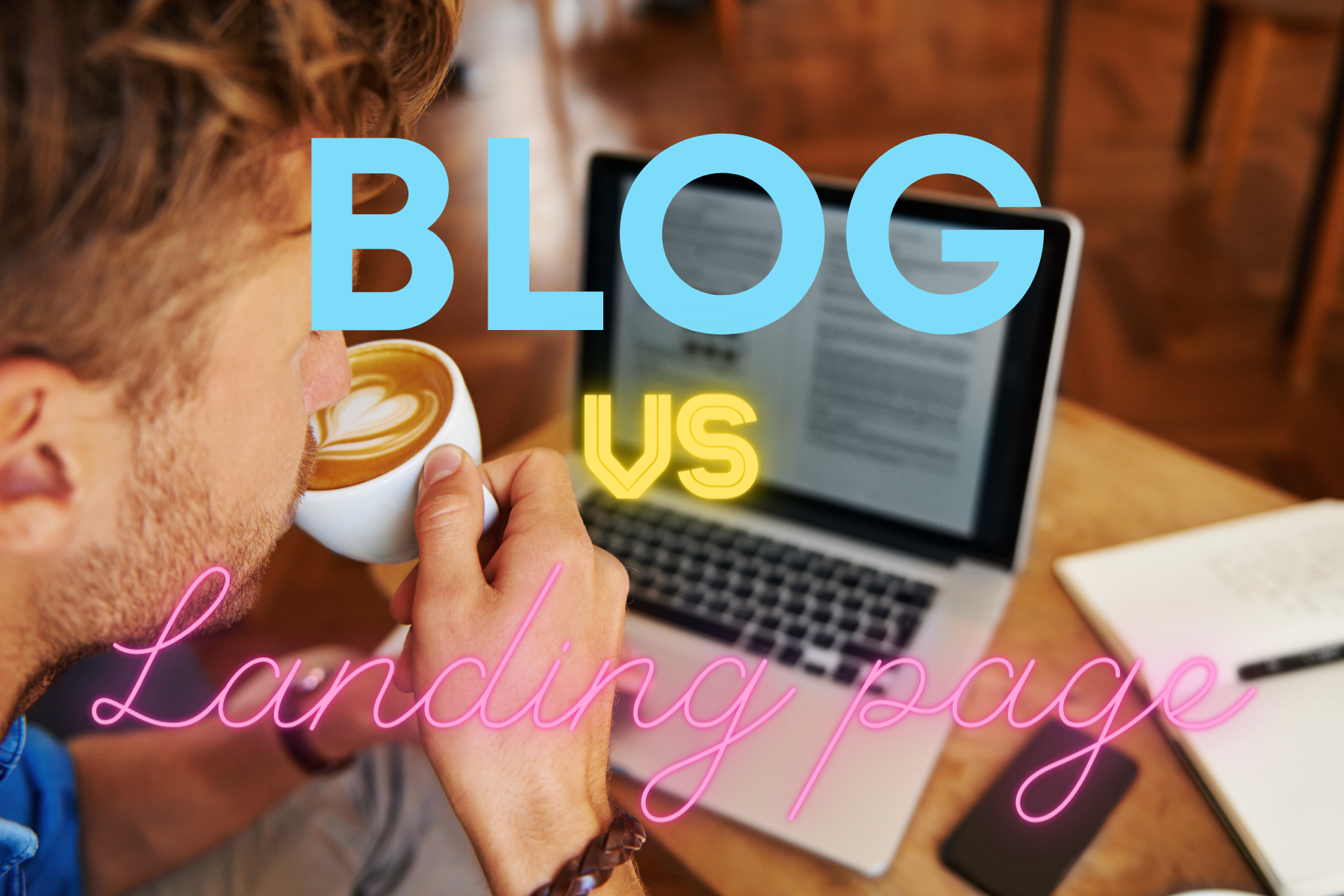What Is The Difference Between A Blog And A Landing Page?
So you might be asking yourself, what is the difference between a blog and a landing page?
In short, a blog is a website where people can regularly post their thoughts and ideas. A landing page is a website or online form where someone will take action, such as making a purchase or registering for a service. While both blogs and landing pages are used to disseminate information, they have some essential differences that should be considered when creating or marketing your content. For example, a blog typically focuses on providing readers with original content. This means that you are likely to write about controversial topics or ones that challenge conventional wisdom.
On the other hand, landing pages are designed to generate leads and convert them into customers. This means that they will typically feature high-quality content relevant to the target audience. A blog is also different from a landing page in that a landing page is designed to convert visitors into customers. This means that the landing page must provide valuable information to convince the visitor to take action, such as filling out a form or clicking on an advertisement. Both sites can be used for marketing purposes, but it is important to tailor each one specifically for its intended audience.
Let's get into a bit more detail about a blog.
A blog is a website where people can write and publish articles about topics that interest them. It's the type of website where people can post articles, notes, or stories. These can be anything from brief thoughts to in-depth reports on a particular topic. Also, a blog is a website that offers a continuous stream of written content. It's typically designed to provide information about one specific topic and can be used as a way to share the author's insights and thoughts on that topic. A blog can also be used as an opportunity to build relationships with readers by sharing feedback, comments, and questions.
Now that we understand what a blog is, let's look into how to create a blog.
1. Choose a topic that you are passionate about.
Blogs are typically short, informal articles or essays that focus on a single topic. They can be written by an individual or a team of writers and are often updated regularly. If you want to make your blog successful, it is vital to create good informative, and engaging content. When people read your blog posts, they will learn new information and feel they know you better.
2. Research the topic that you are blogging about.
Once you have determined what topic you would like to blog about, the next step is to research. This will help you develop a writing angle and put your thoughts into words. Additionally, look at recent blog posts on the same topic to understand how others have approached the subject.
When it comes time to start drafting your post, start by coming up with a catchy headline that accurately represents the content of your post. After that, break your post down into numbered points so that readers can follow along easily. For example, if you write about travel tips for a new destination, start with a bullet point list: "Here are some tips for visiting X on your trip." Finally, include images and videos where appropriate to illustrate your points.
3. Use descriptive titles and headers.
Always be prepared to market your blog aggressively. You'll need to create compelling titles for each post, write effective headlines, and create high-quality images that will help draw in readers. With a little effort, blogging can be an incredibly successful way for you to share your thoughts with the world.
4. Use keywords throughout your content.
Blog writing can be a great way to share your opinions with the world, connect with like-minded people, and build an audience that you can rely on for support. However, before you start writing your first blog post, you should keep a few things in mind.
First and foremost, make sure that your blog content is well- keyword rich. By including keywords throughout your text, you'll help ensure that your readers find and explore your content on search engines. Additionally, suppose you're promoting a product or service through your blog. In that case, it's essential to include keywords in the titles of each post so people searching for information about those items will see yours first.
Finally, be sure to regularly publish new content. This will keep readers interested in what you have to say, but it will also help increase web traffic to your site. If you struggle to develop new ideas for blog posts or find it hard to stay motivated while writing them, consider turning to paid blogging services like Blogger or WordPress for assistance.
5. Write in a clear, concise, and easy-to-read style.
When writing your blog, keeping the tone light and engaging is essential. Try to write in a conversational tone, using colloquialisms and language that your readers will understand. Be sure to include images and videos where appropriate.
6. Create engaging images and videos that promote your blog content.
A great-written blog is just part of the equation. Utilizing video content or images to engage and attract new readers is a great way to promote your blog. By creating engaging photos and videos, you can help your blog stand out from the competition.
7. Promote your blog through social media, email campaigns, and word-of-mouth marketing.
Start by creating a social media profile for your blog and set up a profile for each social media network you plan to use.
Next, create an email list and send periodic announcements and blog posts to your list. You can also use social media to promote blog posts on other sites to increase traffic to your site.
Finally, try to get word-of-mouth marketing by talking about your blog with friends, family, and acquaintances.
Now, let's move on to landing pages.
A landing page is designed to convert visitors into customers or subscribers. A landing page typically contains a headline, an aggressive tone, and a description of the offered product or service. Typically, images or videos that help explain the offer and a form (or multiple forms) where visitors can enter their contact information to learn more or sign up for updates are added. Landing pages are often created to generate leads or sign up new subscribers immediately after someone clicks on one of the links. This means that the landing page must provide valuable information that will convince the visitor to take action.
A landing page is an integral part of any web marketing strategy. Landing pages should be designed with two goals in mind: getting people to take action and generating leads. To get people to take action, you need to create a clear call-to-action (CTA) button or headline that tempts them with something valuable or interesting. You can also include attractive graphics and videos that will capture their attention. You need to provide helpful information about your product or service to generate leads. This information should be compelling enough for people to want to learn more about it.
Landing pages are a powerful tool for web marketing because they can help you reach new customers quickly and easily. If you're looking for ways to improve your web marketing strategy, a landing page may be the perfect solution for you!
So now you know the difference between a blog and a landing page and how both can grow your online presence. Remember, a blog is an excellent way to share your thoughts and ideas with the world, and a landing page is a great way to convert leads into customers. By creating a blog or a landing page that's tailored to your audience, you can ensure that you capture more leads and convert more visitors into customers. One thing to remember, once you have started writing your posts, it's essential to keep up the momentum. Regular blogging and landing pages will help you develop an audience of readers who appreciate your unique perspective on topics.






.png)
 (1).png)

